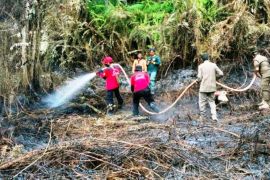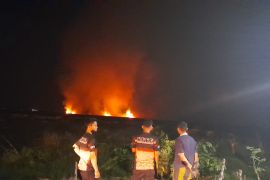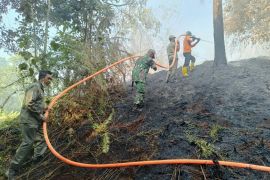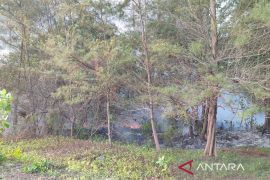"Visibility in some districts and cities in Riau was normal at around 7:00 a. m. local time. There was no haze," an analyst of the station, Ardhitama, said here on Friday.
Visibility reached 5 kilometers in Pekanbaru and was more than 3 kilometers in Pelalawan and Rengat.
Moderate to high intensity precipitation significantly reduced the number of hotspots in Riau. While there was only one hotspot on Thursday, there were none on Friday.
The province is now experiencing a dry season, but it rained three times over the week.
In the meantime, a total area measuring 1,246 hectares (ha) across the province was razed by wildfires from June 24 to July 26, 2015, according to Chairman of the Riau Forest and Plantation Fires Task Force Major General Nurendi.
The task forces personnel managed to put out fires in 1,125 ha of area.
"However, due to the extreme hot weather and most of the affected land being peatland area, most of the fires reemerge if not supervised carefully," he pointed out.
The task force comprises joint teams from the Riau administration, the Indonesian Defense Forces (TNI), the National Police, the Riau disaster mitigation office, and the Riau meteorology and climatology office.
According to Chief of the Riau disaster mitigation office Edwar Sanger, the office has deployed two helicopters: Mi 17 and Sikorsky to conduct water bombing activities over the fires. Sikorsky has a capacity to carry up to four tons of water during each sortie.
Besides this, a Hercules aircraft has also been deployed to conduct cloud seeding to produce artificial rains by using weather modification technology in Riau, which is currently being hit by El Nino-induced drought.
In Riau province, some 5,033 people fell ill because of air pollution.
Authorities have urged local residents, particularly expecting mothers, children and the elderly, to stay indoors as they are more prone to be affected by haze.(*)
Editor: Heru Purwanto
Copyright © ANTARA 2015











